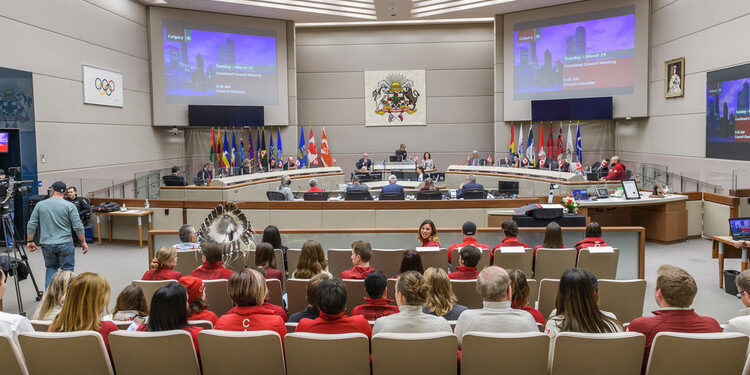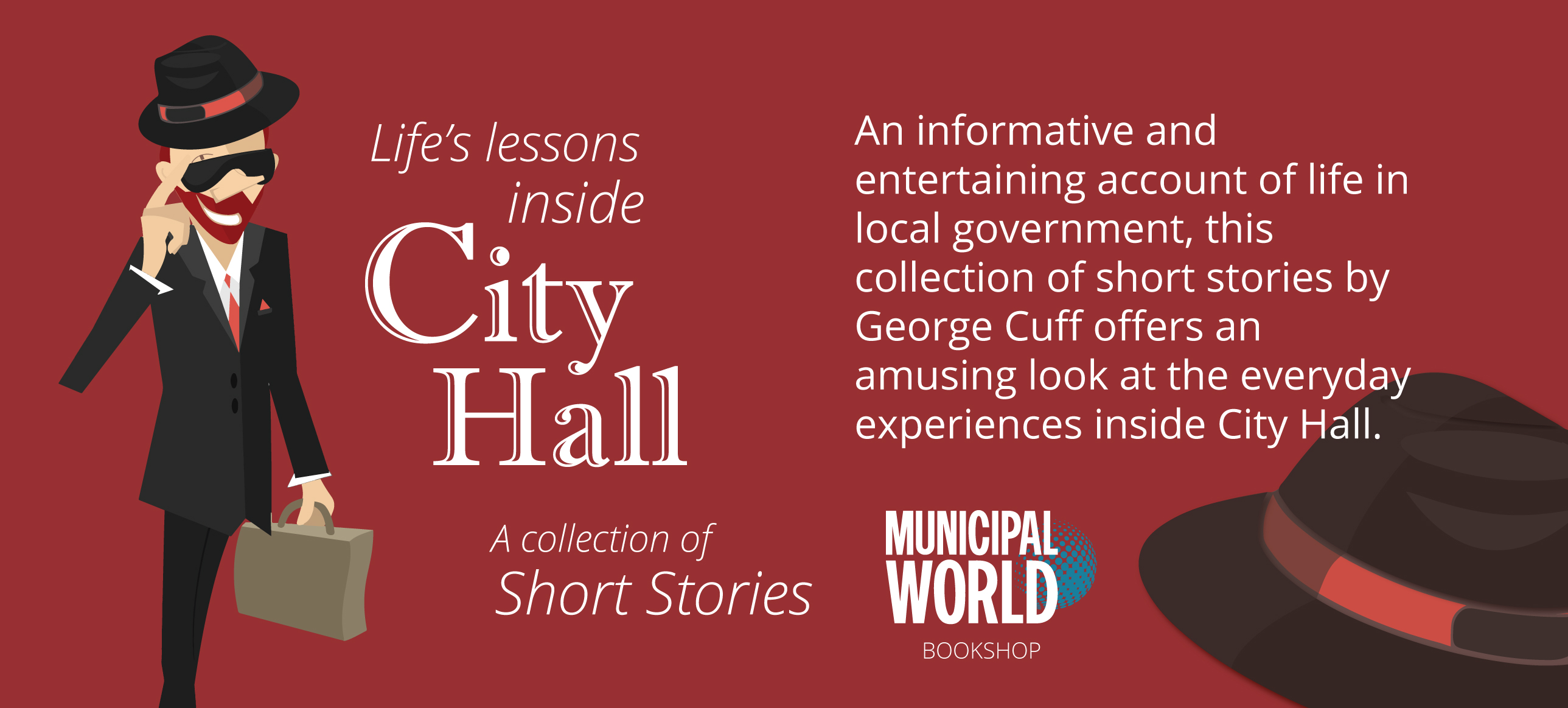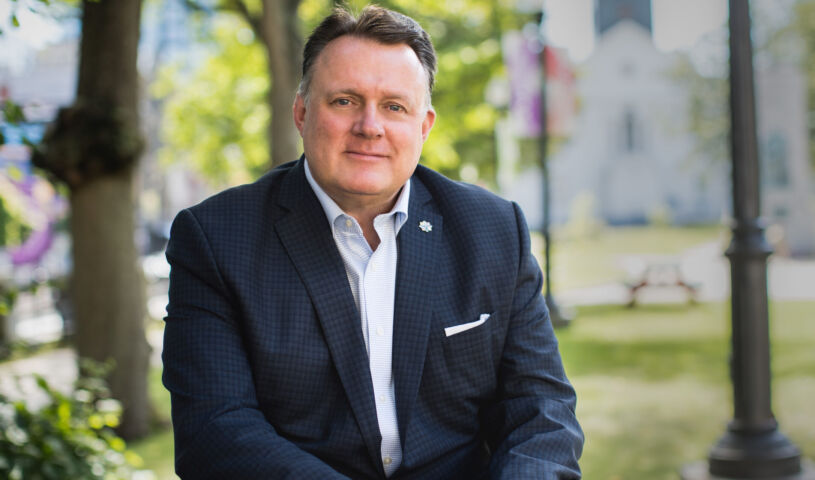Alberta premier pushing ahead with plan for municipal parties
 Alberta Premier Danielle Smith has received considerable pushback to her plan for allowing political parties at the municipal level in larger cities. Photo: City of Calgary
Alberta Premier Danielle Smith has received considerable pushback to her plan for allowing political parties at the municipal level in larger cities. Photo: City of Calgary
Alberta Premier Danielle Smith recently said her government plans to introduce legislation allowing political parties at the municipal level in larger cities. In an interview in late February on the radio program, Your Province. Your Premier, Smith said, “I’m in favour, especially for the largest municipalities – maybe not everyone.”
Currently, under the province’s Local Authorities Election Act, municipal elected officials are not allowed to have a party affiliation. Smith argued that allowing parties would bring more transparency to the partisanship that already exists in municipal politics.
“We’ve got 355 municipalities. The smaller the municipality, I don’t know that they’re as partisan,” she said. “But when you get into a city the size of Calgary or Edmonton, you better believe it’s partisan.”
Smith added that legislation would likely be introduced some time in the spring session. However, the premier has thus far failed to convince her sceptics in the province who say the province has bigger issues to deal with and that the proposal isn’t clear about the problem it is trying to solve.
Albertans Unconvinced
Chief among those critics is the province’s municipal organization, Alberta Municipalities. In response to the premier’s pronouncements, the association put out a statement saying its members were “deeply troubled” by the idea and that Albertans do not want political parties in local elections.
“There is clearly little support for the provincial government’s plan to introduce divisiveness to local governments,” the statement says.
Alberta Municipalities aren’t the only sceptics. The mayors of Alberta’s two largest cities have also voiced their opposition to the idea. “Like many in local government, I am opposed to establishing political parties at the municipal level,” Edmonton Mayor Amarjeet Sohi said.
Calgary Mayor Jyoti Gondek has also said she’s “not a fan” of such legislation. “I think if we fall into this quagmire of becoming partisan at the local level, it hinders our ability to work across orders of government,” she told reporters in late February.
Red Deer Mayor Ken Johnston was also critical of the proposal, saying it is a “poor move” that would make it difficult for local governments to govern. “Municipal government, at it’s heart, seeks to engage citizens toward a collective quality of life,” he said. “It therefore should be unfettered by party or partisan politics so that the most authentic voice of it’s citizens is heard.”
Some have suggested that the premier’s push for political parties is driven by a desire to get more United Conservatives elected on councils in Alberta’s big cities.
“You can have a reasonable policy debate about what is best for Alberta, but that’s not what’s driving this,” said Duane Bratt, a political science professor at Mount Royal University. “The premier has made no bones about this. She’s made it explicit that the purpose is to elect Conservatives in Calgary and Edmonton.”
Little Public Support
Last November, the provincial government conducted a survey to gauge public sentiment toward the idea. The government’s website shows that the process is still under review. However, the Edmonton Journal was able to get the results through a Freedom of Information Request. The survey received 7,680 responses with over 70 per cent disagreeing with the idea of allowing political parties. Only around 23 per cent said they agreed with the idea.
A September 2023 poll conduced for Alberta Municipalities by pollster Janet Brown showed similar results. It indicated 68 per cent of Albertans prefer candidates in municipal elections to run as individuals and not members of political parties.
“This legislation is not something that Albertans are asking for,” Sohi said. “In fact, there have been multiple surveys and indications from the public that Albertans are opposed to this change.”
Another issue is a lack of clarity around details of the proposal. At a meeting with civic leaders earlier this month, Smith said the legislation is “still under debate, it’s still under consultation … [it] may not apply to everyone, may just be a pilot project, and may just be targeted to the major cities.”
That’s left many in the province unclear about what the exact issues the province is trying to tackle are.
“No one has clearly explained what real or perceived problems the introduction of political parties to municipal elections would fix,” the Alberta Municipalities statement said. “While political parties serve a purpose at the national and provincial levels due to differences in scale, they are unnecessary at the community level.”
That was a sentiment shared by others who also highlighted a lack of clarity in the government’s approach.
“It is unclear what problem the province is trying to solve,” Sohi said. “Especially when there are so many pressing issues that require a collaborative approach to municipal governance and being able to work across partisan lines. What we don’t need is increased partisanship and polarisation at the municipal level.”
Municipal Parties Nothing New
While critics in Alberta have voiced their concerns, some experts have pointed out that political parities at the municipal level are not new to Canada. Such parties already exist in British Columbia and Quebec, and cities like Vancouver and Montreal have a long history of party politics.
A recently published paper by a group of Canadian academics indicates that Canadians aren’t keen on the idea of political parties in local government. In their paper titled Understanding Support for Municipal Political Parties: Evidence from Canada, they surveyed how voters in Ontario view municipal political parties.
“We find little support for municipal political parties, and that many voters have sophisticated reasons for prefer-ring either independents or parties,” the paper states. “Ontarians appear satisfied with the non-partisan status quo municipally, despite the presence of party systems both provincially and nationally.”
However, they also highlight that political parties can help bring some benefits, such as improving accountability and allowing voters to better know where a candidate stands.
“Political parties may also improve political accountability after the election is over,” they write. “Even the most engaged local residents often find it difficult to track their councillor’s position on important votes in non-partisan councils, especially on larger councils … the presence of an organized opposition (party) serves to keep the public better apprised of the business of council.”
Political Warning from Municipalities
However, municipal officials in Alberta have warned of the downsides of party politics on local councils.
“I really appreciate the fact I don’t have a party telling me how to vote,” Gondek said. “I don’t have someone whipping votes saying, ‘this is what you’re going to do.’ We have 15 members who were elected to think clearly, look at the empirical evidence, and make strong decisions for citizens.”
Alberta Municipalities voiced similar concerns, saying it was worried that introducing political parties in municipal election could create situations where “councillors must balance the interests of the political parties they represent with those of their constituents.”
The academic paper also highlights the possibility of these issues arising: “One possibility is that a party system would remove the careful deliberation of council members from public view. Important decisions regarding policy may be made by partisan staff and enforced by a party whip, disallowing individual members from expressing their views.” MW
✯ Municipal World Executive and Essentials Plus Members: You might also be interested in Brian Arnott’s article: The municipal governance gap (Part 1).
Ibrahim Daair is staff writer at Municipal World.
Related resource materials:
- Canadian and U.S. cities call for ceasefire in Gaza
- UBCM Housing summit: Affordable housing, infrastructure top of mind for delegates
- Social housing waitlists growing across Canada’s big cities



